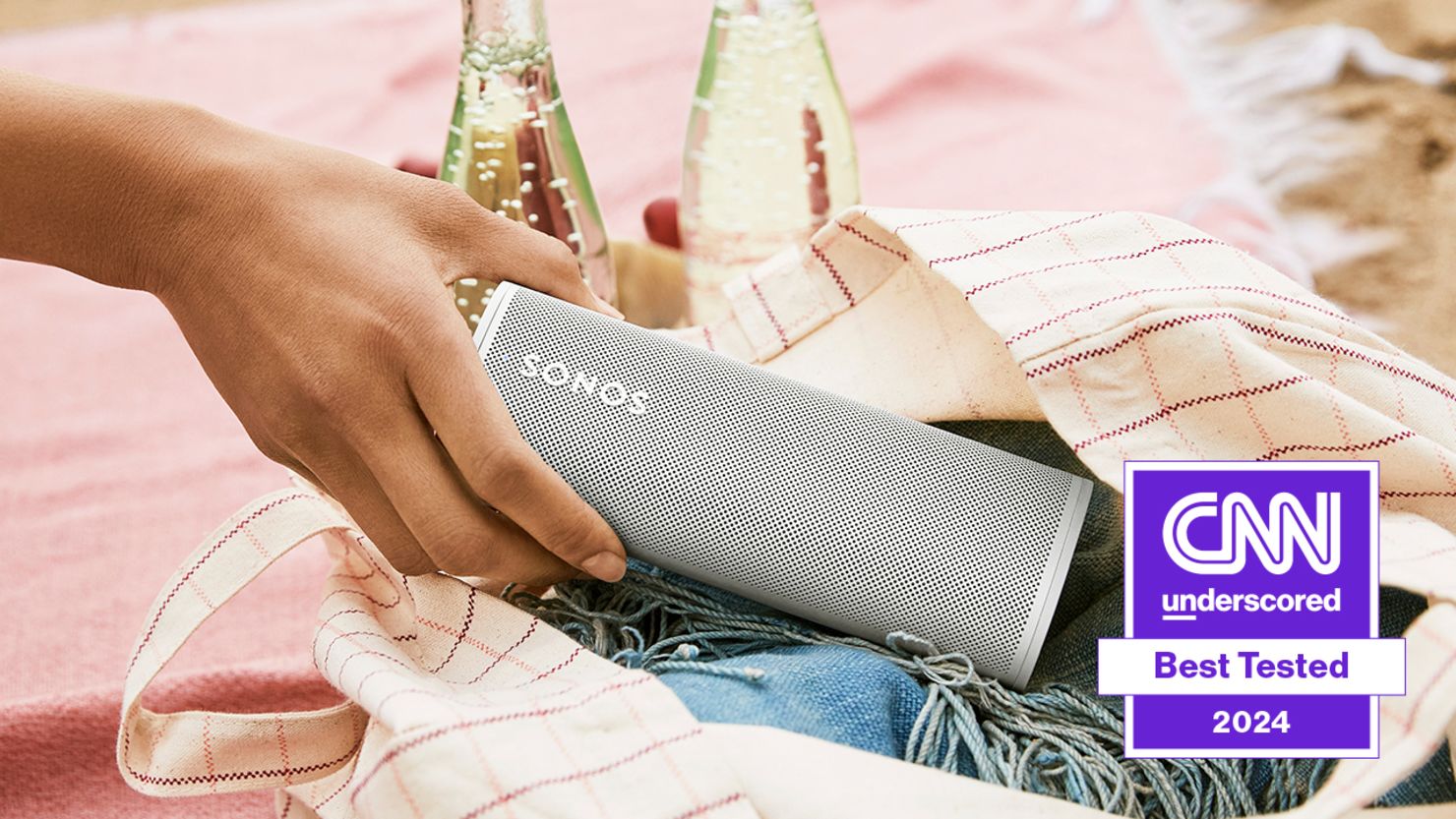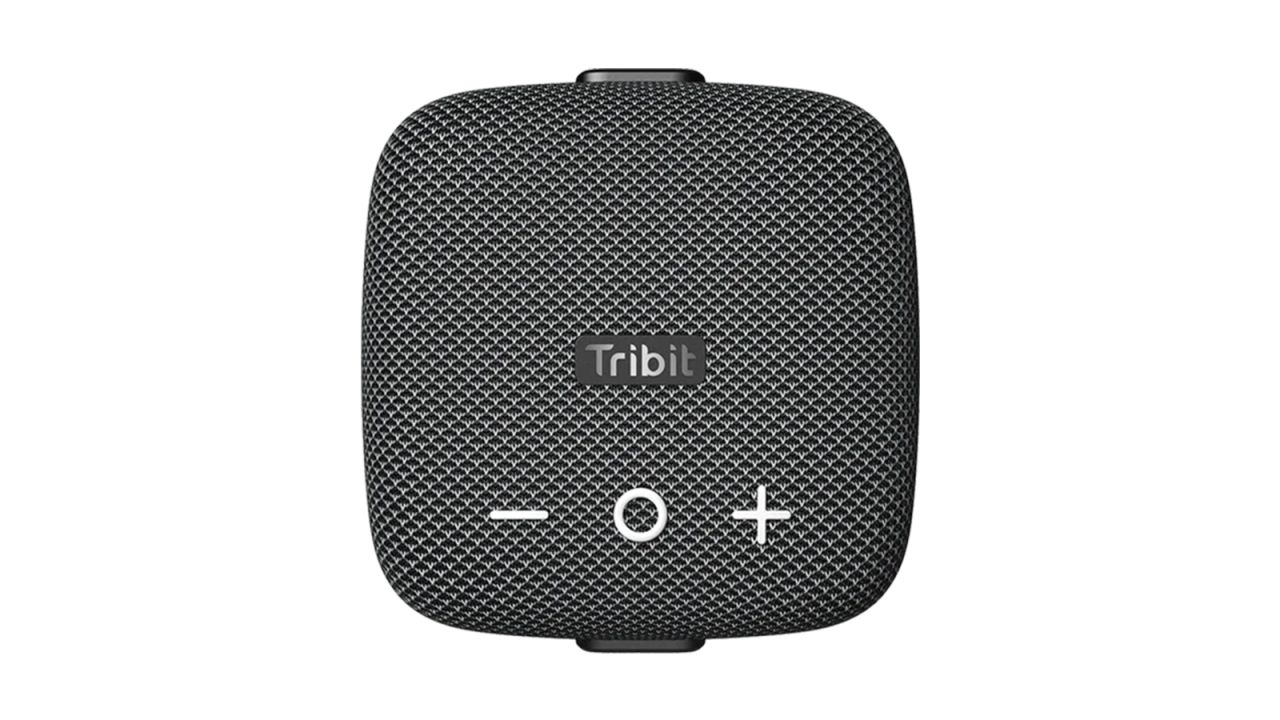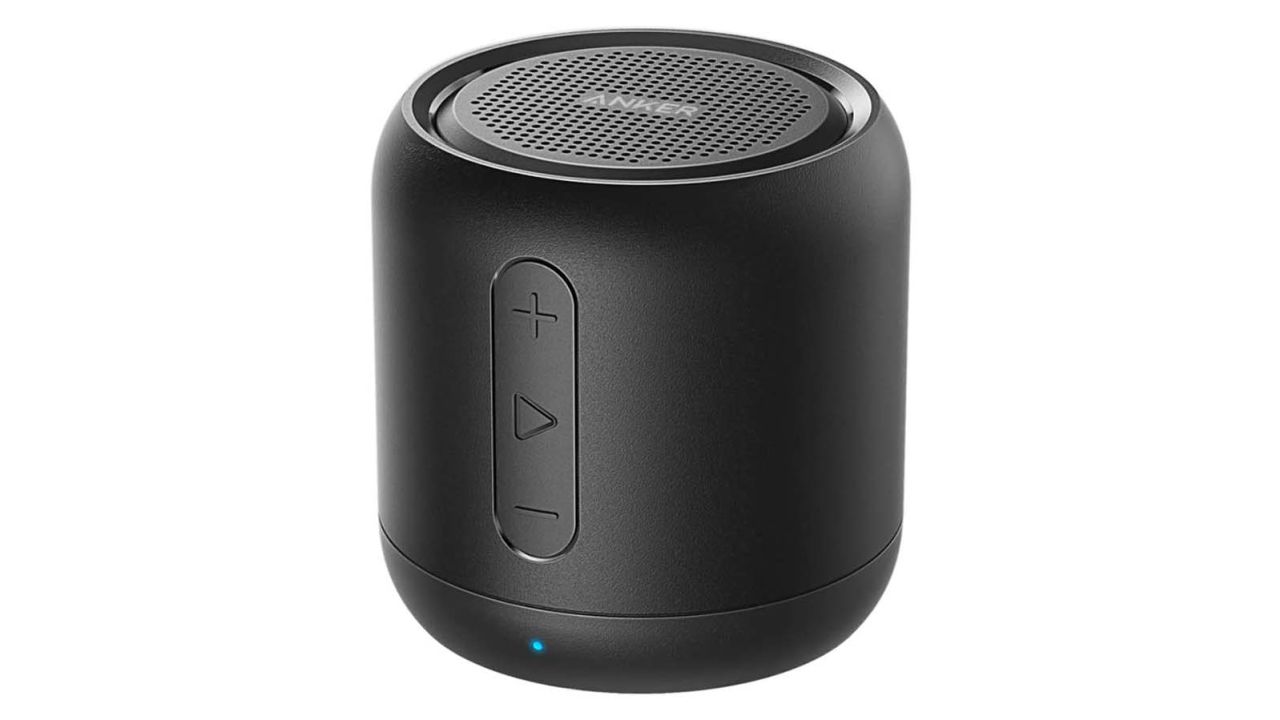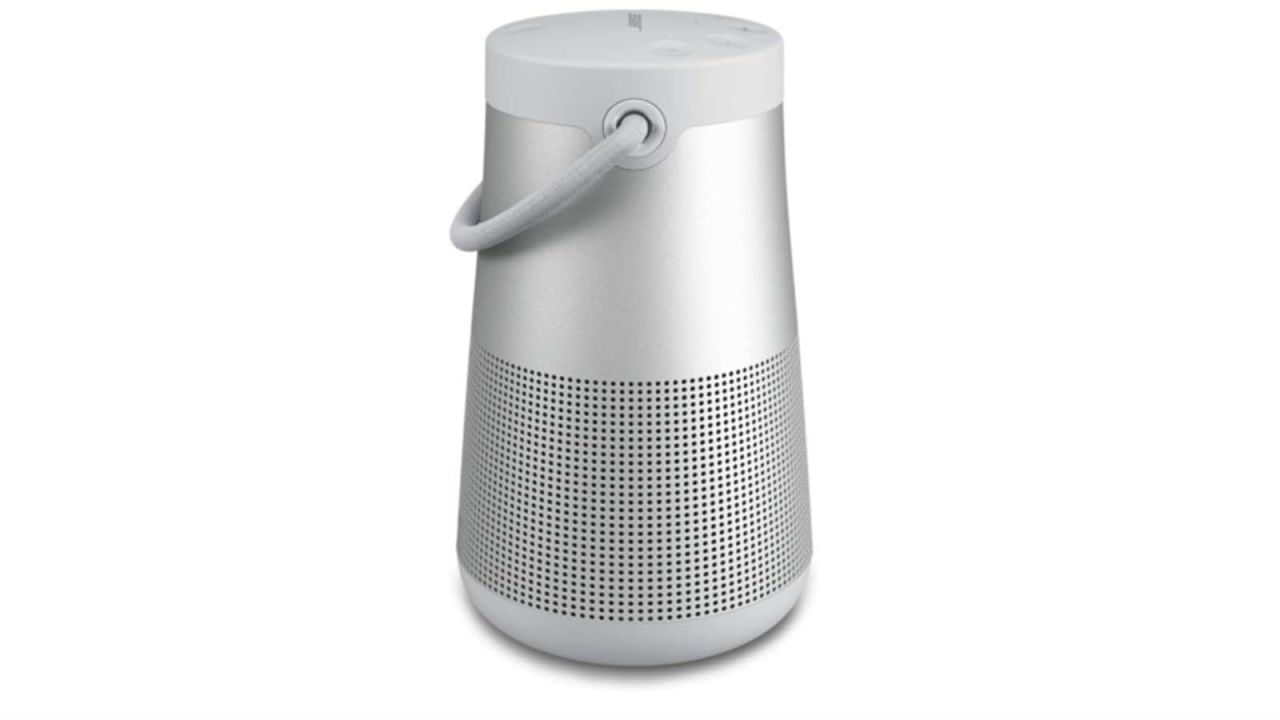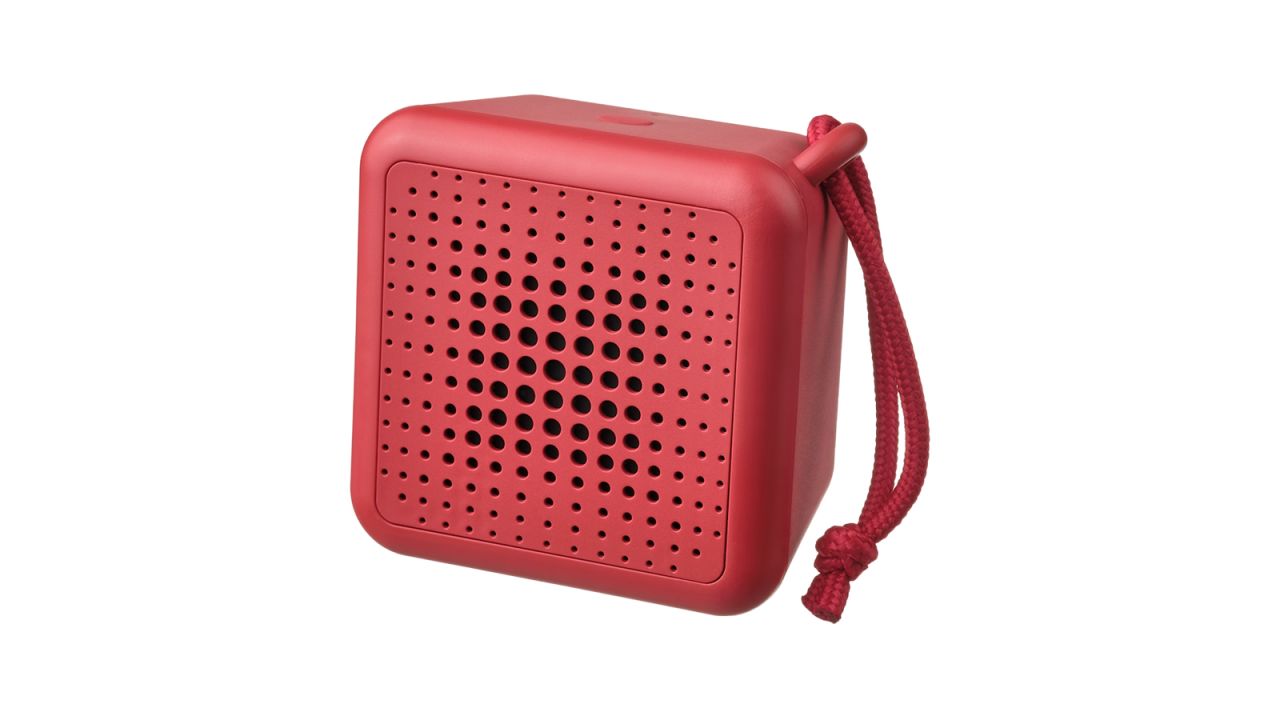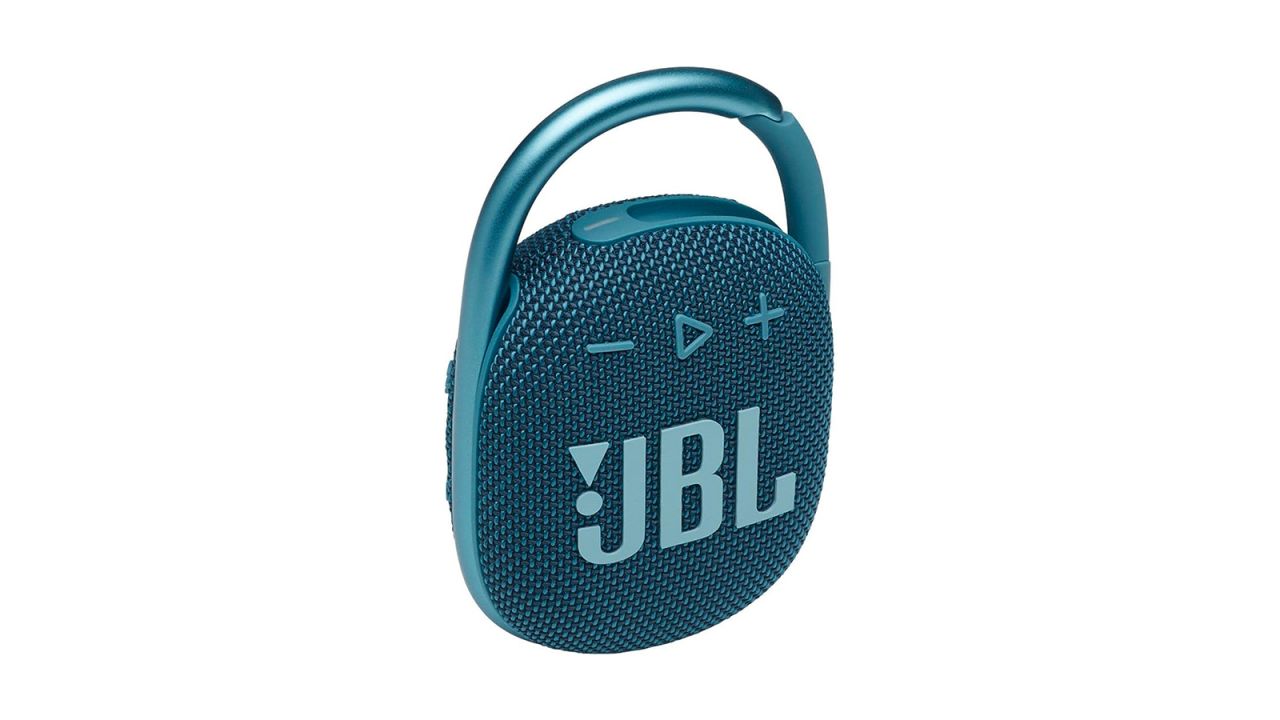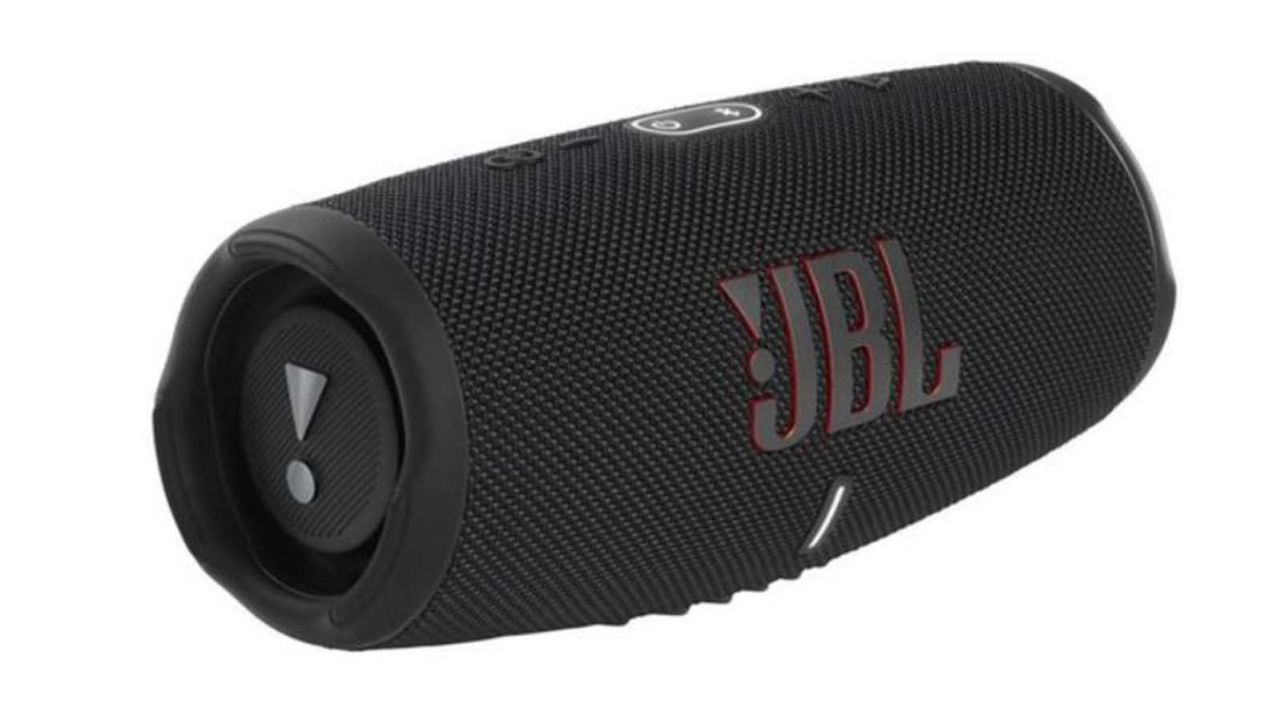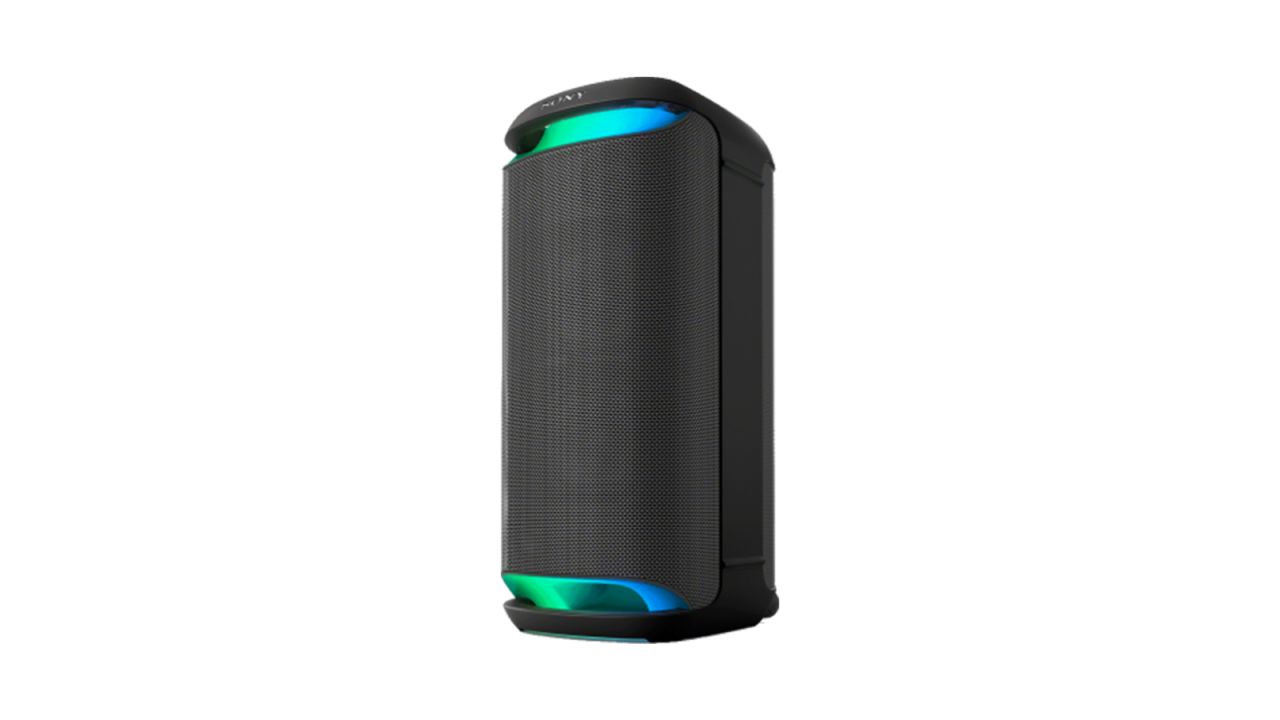The best portable Bluetooth speakers we tested
Best portable Bluetooth speaker: Ultimate Ears Boom 3
Best portable Bluetooth speaker for travel: Sony XB100
Best upgrade portable Bluetooth speaker: Sonos Roam 2
Best budget portable Bluetooth speaker: Tribit StormBox Micro 2
Best large portable Bluetooth speaker: Sonos Move 2
The best portable Bluetooth speakers are more than just roadworthy — they need to sound pretty damn good wherever you go. It doesn’t matter if you’re bingeing a podcast while cleaning the house or hosting a get-together and need to pump some tunes in the yard, a Bluetooth speaker has to produce clear and crisp audio, with enough battery life to last the duration of your session.
But many brands make quality speakers and each has several models worth considering. To make that decision a bit easier for you, we’ve tested nearly two dozen of them to find the best Bluetooth speaker for what you want — and for what you want to pay. After countless tests and seemingly endless hours jamming to our favorite playlists, we’ve found five speakers that stand out among the noise.
The UE Boom 3 gives you robust, 360-degree sound in a waterproof, dustproof canister you can take everywhere. It’s about everything you'd want in a Bluetooth speaker for less than $200.
The Sony XB100 improves on our previous favorite travel speaker, the Sony XB13, with bigger sound and a slicker design. If you want to spend less than $60 on a small, great-sounding speaker you can take anywhere, the Sony XB100 is a no-brainer.
Easier setup and an improved interface are the main changes on the Roam 2, which, like its predecessor, packs elite sound and coveted Sonos integration into a rugged shell that's worth the splurge.
The StormBox Micro 2 achieves a nice balance of bass and treble in a small package. With better sound than your smartphone, the Tribit Micro 2 has a 12-hour battery life and improved sound quality from the previous StormBox Micro model.
The Sonos Move 2 is a great choice for folks who care most about sound quality, want the perks of the Sonos ecosystem and don’t mind toting around a larger speaker.
Best portable Bluetooth speaker: Ultimate Ears Boom 3

From strong sound to long battery life, the UE Boom 3 checks off all the boxes. Housed in a cylindrical canister just over 7 inches tall, it’s small enough to take with you (about the size of a water bottle) but puts out enough high-quality sound for almost any situation.
If you purchase a Boom 3 via the myBOOM Studio, you can customize it in hundreds of color and design combinations. From hot pink with purple accents to a muted lavender (like the Boom 3 we’ve been testing) you’re sure to be able to match your tastes. A small cloth hook on the rear lets you hang the Boom 3 on a hook or clip in a carabiner. The bottom has a standard tripod thread if you want to mount the Boom 3. And on the rear, under a waterproof rubber door, is a Micro USB port for charging. This is outdated at this point, and one of the Boom 3’s few downsides. A wireless charging dock is available separately but we’d prefer an up-to-date connector here. Please, Ultimate Ears, switch it to USB-C.
The Boom 3 has an IP67 rating, meaning it’s dustproof and can handle being immersed in water up to 1 meter deep for 30 minutes. You wouldn’t want to take it snorkeling, but it can withstand splashes, make it through any hike or camping trip and take a dip in the pool.
Using the Boom 3 is as simple as its visual design. Two large, easy-to-press volume controls are on the front, with all other controls accessed via two buttons at the top. The smaller button at the top turns the Boom 3 on or off — and we love the quick bongo beat when you turn it on. It’s a taste of the sound quality to come. The more prominent button (UE calls it the “Magic” button) controls all other functions. A single push will play or pause. A triple tap skips and long-press resumes playback to a preset playlist. Via the Boom app for Android or iOS, you can choose that playlist from Amazon Music, Apple Music or Deezer. It’s a fun feature but not a necessary one.

Connecting the Boom 3 to Bluetooth took seconds with an Android or iPhone. After that we hit play on “Good 4 U” by Olivia Rodrigo to hear the smooth opening bass line; her vocals were clear before the instrumental track built into a loud clash of a climax. Boom 3 offers clear separation between instruments, and we only heard any distortion with a lower-quality track at super-high volumes. It has an impressively clear sound for a speaker this small. And the Boom 3 gets quite loud. At 50% we could easily fill a small room in an apartment, and 100% lets us hear it throughout the space. It pushes sounds out in a 360-degree format, so you can put it anywhere and still get good sound. And it’s not just good for pop-punk. A track like “Fire” by Bruce Springsteen displays how the Boom 3 can tackle a more subtle mix. We could easily distinguish the opening bass and guitar tones before Springsteen’s vocals, drums and piano enter. You can easily pair or group the Boom 3 with any other UE speaker if you want a stronger sound.
For moments when you want to increase the bass or any aspect of the mix, the Boom app will be your best friend. And it’s an aspect that lets the Boom 3 stand out from the plethora of speakers we tested. You get a full equalizer to play with and customize on the fly. UE offers a few presets like “Cramped Spaces” or “Voices” and leaves you with one “Custom” mode that will save your selections. We just wish you could save multiple EQ mixes.
It’s disappointing that the Boom 3 charges with Micro USB, but you won’t need to grab the included cord that often. In our testing, the Boom 3 lasted a substantial 14 hours at 60% volume. Quite impressive for a speaker of this size. The UE Boom 3 lasted longer than other speakers closer to the $200 price point.
At $130, the Boom 3 gives us what we’re looking for in a Bluetooth portable speaker, and we have no doubt it will be blasting tunes for a long, long time.
Best portable Bluetooth speaker for travel: Sony XB100
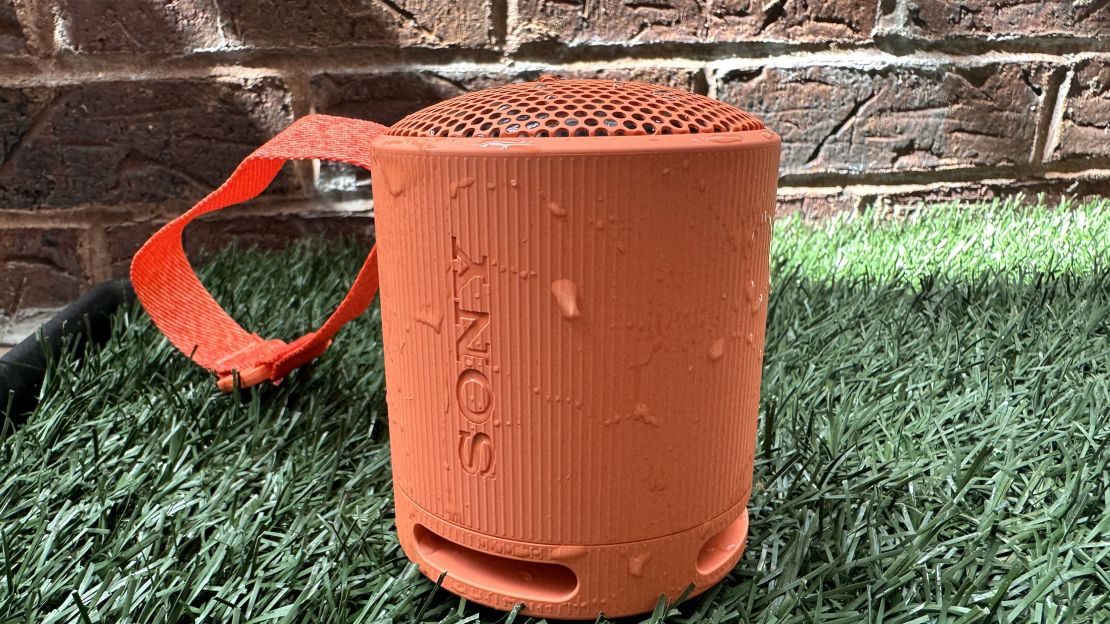
The XB100 doesn’t mess with what already worked on the XB13, which was our previous pick for best portable travel speaker. Sony’s latest mini speaker looks a lot like its predecessor, with a 3.7-inch tall, 0.6-pound design that fits easily into the palm of my hand, and has a handy cloth strap for attaching the XB100 to your backpack, bike or pretty much anything else you’d like to have a Bluetooth speaker hanging from.
The XB100 is IP67-rated, which means it’s fully protected against dust and sand and can survive being dunked in about three feet of water. We completely soaked the XB100 in running water and it kept on jamming out just fine afterward.
It also pumps out impressively loud sounds for a speaker shorter than a soda can. Sony’s portable noisemaker had no problem filling a bedroom and living room with a crisp sound that — for better or worse — goes especially big on bass. Overall, this is a fantastic-sounding speaker for $60 but fans of electronic music, hip-hop or anything bass-heavy will likely get the most out of it, especially since there’s no companion app for customizing things. If you want more immersive stereo sound (and are willing to pay for two speakers), you can pair two XB100s together, which is a nice extra touch.
A portable speaker is no good if it’s going to die halfway through your trip, and fortunately, you won’t have to worry about that much with the XB100. Sony’s latest speaker is rated for 16 hours of battery life, which largely lines up with our testing: We were able to get through nearly five days of heavy on-and-off use (including long hours of music and a few calls) before the speaker’s low battery indicator even lit up.
The Sony XB100 refines what was already our favorite travel speaker, pumping out excellent sound and a big battery for its small size — all while looking good doing so. If you’re hoping to spend no more than $60 on a tiny speaker you can stick onto your bag or bike, the Sony XB100 is a no-brainer.
Best upgrade portable Blueteooth speaker: Sonos Roam 2
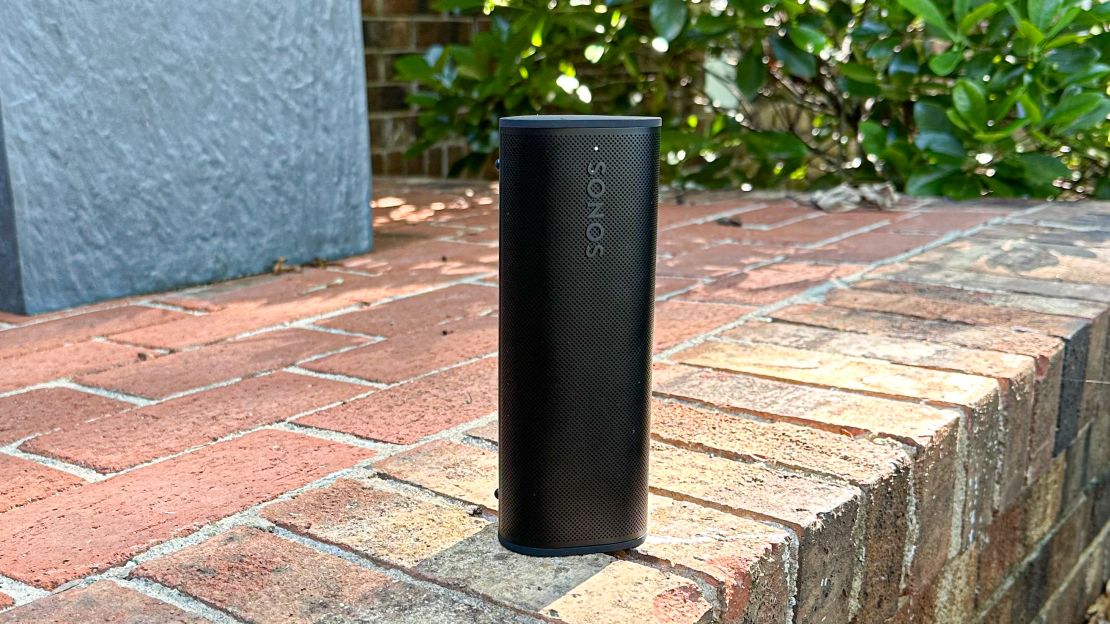
The original Sonos Roam, which debuted in 2021, was a fantastic portable Bluetooth speaker that could work within your home’s Sonos ecosystem and as a smart speaker. Its sound lived up to the brand’s stellar reputation, and its integration-packed features that other speakers couldn’t match.
The Sonos Roam 2 doesn’t change much — and that’s a good thing. A passing glance might even mistake the newer version for the OG because the only cosmetic changes are updated buttons and a Sonos logo that matches the color of the unit. The rest of the updates are under the hood.
We didn’t detect many sonic changes from the Roam 2 compared to the Roam. It still packs delightful sound, with clear vocals and great bass (which gave our desk a bit of a quake during testing) for a speaker of its size. Sure, there’s some sharpness you miss out on compared to the full-spectrum sound you’d get from a larger, stationary speaker, but when you’re on the go, it’s hard to ask for more than what the Roam 2 delivers.
If you have a Roam and want to upgrade to the Roam 2, don’t dispose of the former. You can join the two speakers together as a left-right stereo pair. Of course, the same capabilities exist if you buy two Roam 2s, which isn’t a bad idea. It’s still cheaper than the price of a single Sonos Move 2.
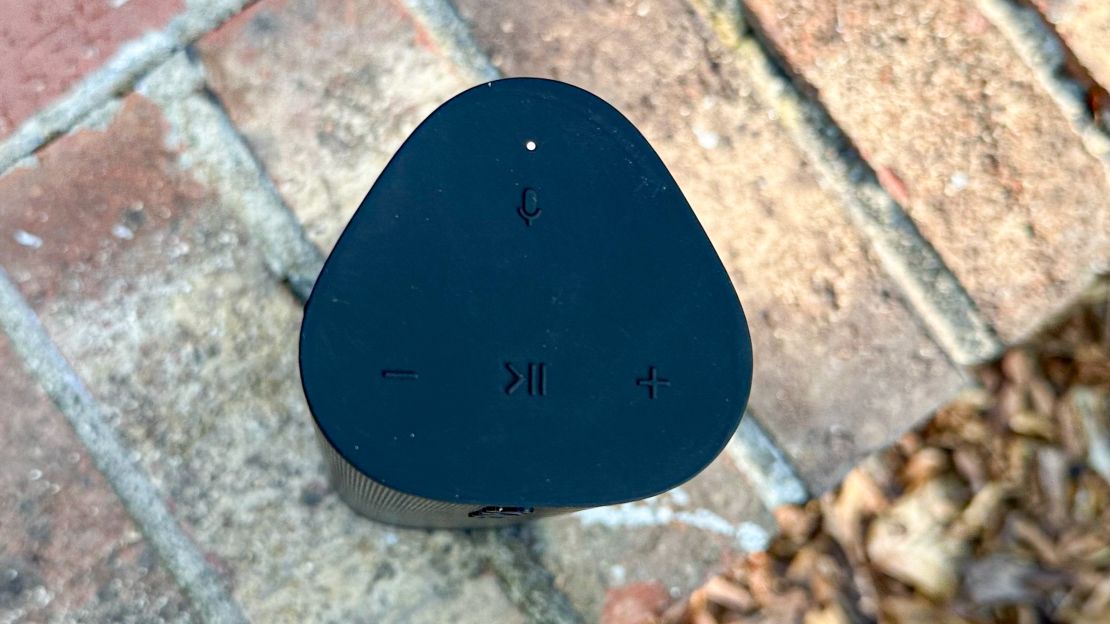
The biggest change on the Roam 2 is the addition of a stand-alone Bluetooth button. Previously, the Roam connected to Bluetooth using the power button, but the new button makes the initial setup easier. Instead of having to be on Wi-Fi to connect to the Sonos app to get your tunes bumping for the first time, you can fire up your new Roam 2 anywhere via Bluetooth. It’s a small but welcome change.
Still, the Sonos app is a big part of what makes the Roam 2 worthy of our upgrade designation. One of the many features we love is its Auto Trueplay tuning, which uses the speaker’s microphone to adjust the sound to your environment.
The Roam 2 comes in five colors: black, white, Sunset, Wave and olive. It can be positioned vertically and horizontally, though neither gives you 360-degree sound. Its triangular prism shape is packaged in a durable, IP67-rated shell, so don’t worry about a drop on the ground or in the pool.
One thing we wanted to see improvements on was the Roam 2’s battery life. The brand claims 10 hours of playback on a single charge, and we found that to be the upper limit — even at low volume. For comparison, the UE Boom, our top pick, lasts at least 15 hours. Sonos does offer a few features that can help mitigate this qualm. Battery Saver, for example, shuts off the speaker earlier when the speaker isn’t playing anything. And you can buy a $50 wireless charger that will keep the Roam 2 powered on a vertical stand.
If so-so battery life and a higher price don’t dissuade you, the Roam 2 is a fantastic buy for its sound and features when you need them on the move.
Best budget portable Bluetooth speaker: Tribit StormBox Micro 2

You don’t have to spend a ton to improve the sound your phone produces. At a discounted price of $43, Tribit’s StormBox Micro 2 hits a sweet spot of sound quality, features and cost.
The StormBox Micro 2 achieves a nice balance of bass and treble in a small package. While the bass won’t rattle your teeth, you can hear it —?which you can’t always say about small portable speakers. Voices sound clear and have some depth. You’ll be hard-pressed to find another speaker at this price that can match the Micro 2’s overall sound.
It produces that sound while maintaining an ultra-portable form that makes it easy to take anywhere. The 3.9-inch-by-3.9-by-1.7-inch, 0.7-pound speaker — just slightly larger than the original StormBox Micro —?also includes IP67 ruggedness, so you don’t have to worry about getting it wet or dirty while on the trail or by the pool.
It runs for 12 hours on a full battery —?slightly less than UE Boom 3 but still an improvement over the previous generation. And you can use the USB-C port to charge your phone, which could be a lifesaver if you find yourself far from a power source.
While it costs $10 more than the original StormBox Micro, the Micro 2’s sound and battery improvements make it worth the extra expense and put it in the running for the best portable speaker you’ll find for under $100.
Best large portable Bluetooth speaker: Sonos Move 2
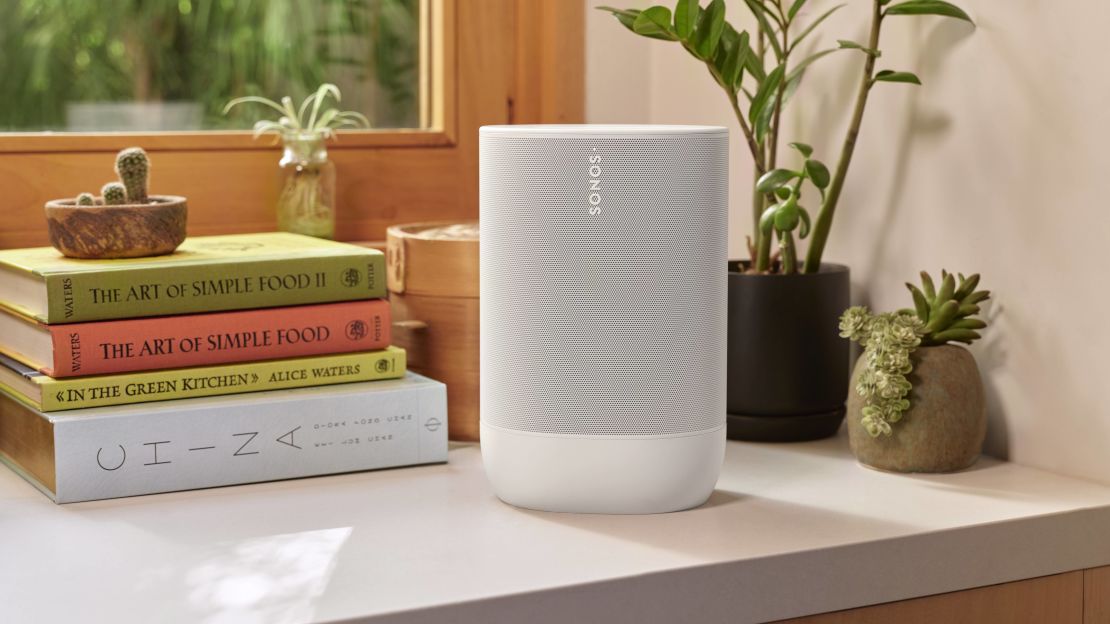
If sound quality is more important to you than how easy a speaker is to tote around (or its cost), the Sonos Move 2 will outperform most portable speakers.
The Move 2 incorporates two tweeters, which allows it to deliver true stereo sound, and it has even more bass than the original Move. You’ll have no problem hearing the low end of your favorite tunes while you’re outside. With Automatic TruePlay, the speaker adjusts its sound to your environment, so you should get the best sound quality at any moment without thinking about it.
Sonos also improved the battery life, increasing it to 24 hours from the Move’s relatively paltry 11. With both Wi-Fi and Bluetooth connectivity, you don’t have to worry about staying connected. One thing to be aware of is its IP56 ruggedness rating: It’ll handle being splashed with water but don’t submerge it.
While it is portable at 9.5 inches by 6.3 inches by 5 inches and 6.6 pounds, you don’t want to lug this speaker out on the trails with you. Think of it as a car camping companion. It’s also a great match if you have a Sonos system in your home and want to extend it outdoors or if you want the freedom to easily move it around your home.
Sound quality and convenience don’t come cheap: The Move 2 runs $449. You could buy two Sonos Roams or three UE Boom 3s for that —?and you’d have more flexibility in how you use them. But if you want the best portable sound in a single large speaker, the Move 2 is the one.
How we tested
After deciding on our testing pool and receiving all the portable speakers, we began our testing. To test sound equally across all the devices, we used an external microphone and decibel meter to measure and balance the output level across all the speakers. Beyond the speakers themselves, we also considered the warranty length and what was covered for each speaker.
Audio
- Quality: After we established the base level, we tested sound and examined audio quality across various tracks. We used songs from genres like pop, rock, hip-hop, punk and classical. We paid close attention to the overall sound quality and whether the speakers introduced distortion or muddiness to the track.
- Volume: Although we tested audio quality by keeping all speakers at the same volume, we also noted how loud each model got.
Design
- Usability and functionality: We tested all the speakers’ usability and functionality by using the onboard controls, pairing them with apps (when applicable) and testing all features. The latter included stereo pairing or specific sound boost modes.
- Durability: We tested its durability by hanging it from several items if there was a built-in hook, carabiner or strap.
- Water and dust resistance: Similarly, we tested the speakers with a hose in the bathtub or in dirt to test water or dust resistance.
- Battery life: We fully charged all the speakers and ran playback at 60% until the speakers died out to test for battery life. This way, we could have a baseline for sound output and test for how long the speakers lasted. If the device offered quick charging, we timed how long it would take to reach a certain percentage of power. We also noted the power draw from the wall brick.
What to consider when shopping for a Bluetooth speaker
Portability
There’s no catch-all locale for listening to portable Bluetooth speakers, so you’ll want to consider where you’ll take yours before purchasing. For instance, if you’re a frequent vacationer who needs something that will fit in a crowded suitcase, perhaps our travel pick, the Sony XB100, is your best bet. Serious audiophiles who want to hear every single note during a backyard barbecue may be fine with sacrificing portability and opt for the Sonos Move 2, our pick as the best large Bluetooth speaker.
If you find you won’t often be sharing these sounds but instead listening by yourself, consider whether a pair of the best noise-canceling headphones or the best wireless earbuds would be a better purchase.
Sound quality
This is where your dollars have the greatest effect. On one end of the spectrum, brands like Bose and Sonos built their reputation on terrific sound quality — but it comes at a typically high cost. On the other end, we’ve tested several speakers in the range of $25, and even though they have great features, you won’t get nearly the same sound quality. Decide how much sound matters to you and how much you want to pay for it. We think our top pick, the Ultimate Ears Boom 3, hits the sweet spot.
Battery life
While all our favorite tested models proved to hold at least 10 hours of battery life when playing at 60% volume, you might often want to crank it up to fill a big room. That, of course, will drain the battery faster.
Bigger speakers generally offer a longer-lasting battery, though size can be deceiving. Our travel pick, the Sony XB100, is rated for 16 hours on a single charge. And the $15 Ikea Vappeby claims it can last 80 hours before you’ll need to plug it in again. Depending on how mobile you’ll be with your new speaker, you’ll want to make sure you don’t pick one that’ll leave you with a fancy paperweight when you need music the most.
Durability
You’ll want to consider how well a speaker will hold up against various elements. Poolside listeners will be glad to know that each of our top five picks — except the Sonos Move 2 — are IP67 rated, meaning you could dunk them in water and rest assured it won’t malfunction. They’re not protected from deep dives, but a drop in the bath is no cause for concern.
Other portable Bluetooth speakers we tested
A passive subwoofer injects a lot of oomph into this tiny speaker from the same brand behind many of our favorite chargers and cables but it's probably worth spending a few more dollars on the Sony XBS100 if you need a compact music source.
The original Pill was a great speaker, and the new iteration of Beats' flagship model levels up even further for a great price. Among the features we love are monstrous sound, stereo pairing, wired lossless audio, iOS and Android compatibility, lengthy battery life and a USB-C charge port.
This portable speaker from Bose is quite similar to the Tribit Stormbox Micro. It has a square build with a built-in strap on the back that makes it easy to attach to anything. Sound quality was classic Bose, with a balanced sound across all frequency ranges, but it can’t be customized through an equalizer. We think you’ll find a lot more value in our budget pick.
Bose’s midrange Bluetooth speaker, the Revolve II, is dramatically bigger than the SoundLink Micro but slightly smaller than the UE Boom 3 or Sonos Roam. It’s a triangular, cylindrical build with machined holes in a 360 fashion on the lower part and sealed sides approaching the top.
The Revolve+ II is a really nice Bluetooth speaker with a useful handle for portability. It’s got the classic Bose sound, providing a balanced experience that can get pretty loud for the unit’s size. We also didn’t encounter any distortion, but the price doesn’t get you any features that make it stand out over our top picks.
EarFun impressed us in the past with earbuds, and for $50, the brand makes an all-around good Bluetooth speaker. It has a similar design to other basic models, with a vertical design that includes a rubber grip bottom for stability. It has good sound, but for the same price you get richer sound and more functionally from the Tribit StormBox Micro.
German audio brand Teufel teamed with Fender for a new trio of Bluetooth speakers, with the rugged Rockster Go 2 being the smallest of the bunch. A passive radiator that visibly rattles with deep bass makes it a fun option, though this speaker is more than a gimmick — its expansive sound and superb battery life impressed during our recent testing.
If you're looking for a tiny speaker that outperforms its price and size, the Ikea Vappeby fits the bill with IP67 waterproofing, decent sound quality and up to 80 hours of playtime when fully charged.
The Clip 4 is designed to go with you or clip onto something like a bag or backpack with its sturdy carabiner. The Clip 4 comes in a number of colors. It didn’t deliver a much more impactful experience over the StormBox Micro, though, which is cheaper when on sale.
The updated Charge 5 is really similar to the Charge 4, and for the same price, it’s louder with a longer-lasting battery. You’re better off purchasing the Charge 5 over the 4 for the better sound or if you really want a speaker that can charge another device.
For close to $180 at full retail, the JBL Charge 4 is a solid but expensive Bluetooth speaker. We found sound quality to be in the middle with an emphasis on a full sound, though we heard some distortion at higher volumes. JBL offers a lot of fun designs, and the Charge 4 can also charge other devices like a phone or tablet. Unless you really want a combination charger/speaker, for the price, we believe you’ll get a better experience with our top picks. If your set on these features, though, we would recommend the newer Charge 5.
If you want a really good-looking speaker above all else, Marshall’s Emberton deserves a look. It’s designed like a guitar amp complete with a metal grille on the front, and it pushes out balanced sound from the front and back. It can easily fill a small room, but you’re stuck with the preset EQ, as this speaker doesn’t support Marshall’s app for Android or iOS.
The Stockwell II is a more feature-filled speaker from Marshall and resembles an amp stack you might find onstage at a rock concert. It supports the Marshall app for some customizations, and via the four knobs at the top, you can adjust EQ, as well as volume, on the fly.
The built-in strap on Skullcandy's entry-level speaker gives it an added element of portability for those who want to clip it on a bag or belt loop. While our testing revealed the Ounce won't give you great connection range, we did find that it gets quite loud and has better battery life than other options in this class, as well as USB-C charging.
The optional "Ult" setting on this newer offering from Sony — which sports a versatile power cord and comes in four colors, including the vivid orange we reviewed — essentially gives you an on-off switch for bass. While those strengths and 360-degree sound make the Ult Field 1 a fine speaker, it doesn't measure up to our favorites for that price.
Rager anyone? This 40-pound beast brings bass on top of bass on top of bass. It lights up, rolls on wheels and includes inputs for a microphone and a guitar. Its sound profile takes a hit when you don't want all the bass, but if you're throwing a party, the XV800 will live up to its name and then some.
The UE Wonderboom 2 delivers an experience similar to the Boom 3, with less powerful sound in a more portable build. Wonderboom 2 comes in a range of colors and can float in the pool, thanks to the IPX7-rated design. It also integrates with the Boom app, which means it can pair with other UE speakers. But at a higher price point, the Boom 3 is a more versatile speaker.
Our audio expert heard slight improvements in the Wonderboom 3 compared to its predecessor, leading to clearer instruments and vocals. But it's otherwise largely the same speaker as the Wonderboom 2, and our recommendation hasn't changed: the Boom 3 is a way better value for a little more money, and the StormBox Micro 2 is superior if you're on a budget.
The higher-end MegaBoom 3 is essentially our overall pick on steroids. For $200 it adds more bass into a given mix, can get louder and stretches the battery life closer to 20 hours. In our testing we noticed distortion at times and don’t see it as a truly game-changing experience for $50 more than our top pick.
While the Stormbox Micro performed very well in our testing, the larger Stormbox was middle of the road. It featured a basic design with average sound and 18 hours of battery life, two hours short of the promised 20.
Our previous pick for best budget speaker, for just $60 when not on sale, the Tribit Stormbox Micro is still a great speaker. And while it’s still cheaper, the original Tribit Stormbox was edged out of the top spot by the Tribit Stormbox Micro 2, which has upgraded sound and battery improvements that make it worth the extra expense for a budget speaker.
